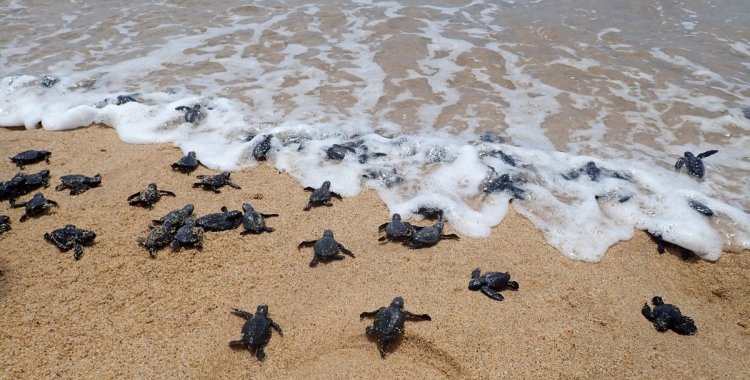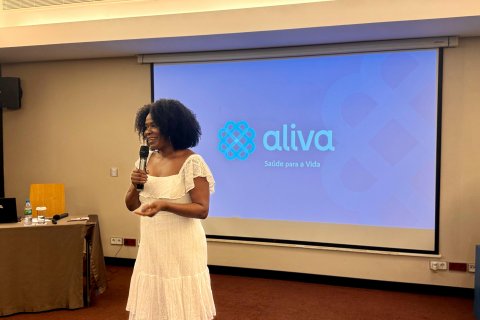According to the coordinator of the Kitabanga Project, Miguel Morais, during the presentation of the "Overview of the Threats to Turtles in Angola Over Time", after the 1980s, in the early 2000s there was a sharp loss of nests per kilometer of beach, i.e. more than 50 percent due to the problems identified.
Miguel Morais, who was speaking in the context of the World Turtle Day, celebrated on Sunday, said that although it has been possible to protect the turtle nesting areas in some places, there is still some problem on the sea side.
Miguel Morais said that during the spawning season, a great pressure of fishing gear, especially artisanal fishing, has been a major problem, and this scenario has been verified along the entire coast of Angola.
"To get an idea of the impact of this scenario, a work done by Joelma Santos, in 2018, in the region of Palmeirinhas and Longa, only monitoring 10 vessels throughout the season, we found that the effect of these vessels, five in Palmeirinhas and five in Longa, caused a capture of more than 400 turtles," he said.
Taking into account that the practice is daily, continued the environmentalist, one can imagine the impact it has on the turtle population, pointing also as a problem the capture with large hook lines, with a large number of turtles caught that way.
Regarding industrial fishing there is no information, but meanwhile, stressed Miguel Morais, "just like what happens in other parts of the world, it is also responsible, and it is something that still needs to be evaluated at the Angolan level.
According to the coordinator of the Kajibanga Project, the occupation of the nesting beaches, with construction in these areas, is also a serious matter, because of its level of impact.
"This will have a reflection on what is the luminosity, that is, the incidence of light on the nesting beaches, which has an impact considered", he pointed out, adding pollution as another source of danger for the turtles.
"Not only resulting from this occupation, but much of it resulting from what is garbage that comes from the mainland, which by trawling inherently ends up on the beaches and this has a negative impact," he stressed, noting that the garbage at sea, especially plastics, causes the death of the animal, by suffocation, because they confuse it with jellyfish, their food source.
"The very fishing nets that are abandoned are often a big problem at sea, but not necessarily at sea, many nets that are abandoned by fishermen also result in what is a very large mortality of small turtles fundamentally," he stressed.
Maritime traffic is also on the list of problems for turtles, which are hit in the marine environment by boats, especially by the faster ones.
Miguel Morais pointed out that this happens either very close to the coast or in feeding and resting areas, when turtles are often "slower".
The extraction of aggregates, which in past years was already a big problem, especially in the Palmeirinhas region, in Luanda, today is concentrated in a few points, however, it is necessary to moderate this process as well.
"Many people still consider turtles as pets, to have at home and then it gives in some problems, it is something forbidden and in a way it is complicated. People who want to use animals as pets sometimes unintentionally commit some crimes associated with that," he said.
The Kitabanga Project coordinator also mentioned predation as a problem, with the existence of certain fish off the coast of Angola, mainly in the southern region, impacting the turtle population.
"We have major critical negative impacts of anthropic influence, targeted hunting is a major problem, egg collection still remains a problem," he stressed.







